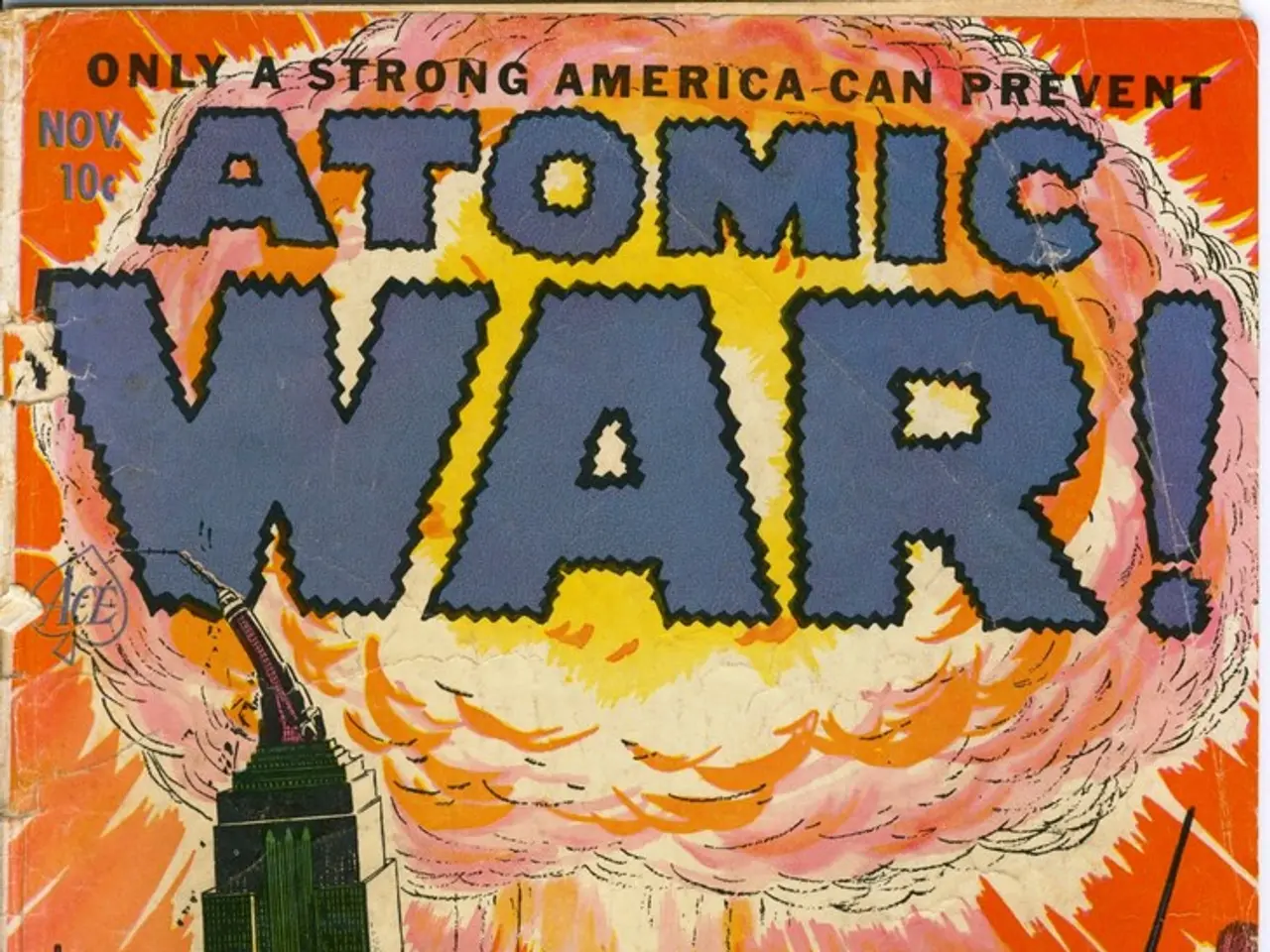China's covert hostilities or undeclared conflict.
In response to China's tightening export restrictions on critical minerals, India is taking a proactive approach to enhance self-reliance and diversify supply chains. This move comes as Chinese President Xi Jinping views China's participation in overseas supply chains as a matter of national security [1].
The Chinese government's Export Control Law, which restricts the export of sophisticated technology and "strategic materials," has been in effect since December 2020. This legislation has led to China imposing export curbs on seven rare earth elements and magnets in April, affecting sectors such as defense, energy, and car manufacturing [2]. Before imposing a total ban on their exports in December 2024, China accounted for nearly 98% and 60% of international gallium and germanium production capacity [3].
Recognizing the potential risks posed by China's dominance in the rare earth elements market, India has launched the National Critical Mineral Mission (NCMM) this year. The mission aims to boost domestic exploration, mining, processing, and magnet manufacturing capabilities related to critical minerals [4]. India's rare earth reserves rank third globally at approximately 6.9 million tonnes [5].
Addressing key gaps such as limited refining technology, inadequate mining infrastructure, and insufficient technical expertise in rare earth processing is essential for India's strategy. This involves promoting technology transfer, private sector participation, and investment in advanced mining and refining capabilities [6].
To mitigate immediate supply risks, India is engaging with friendly nations like Australia and Oman to secure alternative sources of critical minerals. This strategy aims to build more resilient and diversified supply chains beyond China [7].
Long-term supply chain diversification is expected to reduce China’s share of rare earth mining and refining by 2030, enabling India to emerge as a key player in the global rare earth supply chain. Acceleration of domestic production and processing capabilities positions India as a strategic alternative supplier internationally [1][2].
India's efforts to achieve self-reliance in critical minerals are also driven by strategic autonomy goals. India imports 100% of several critical minerals such as lithium, cobalt, nickel, and others that are essential for EV batteries and renewable energy storage. The dependency is considered a strategic vulnerability threatening India's clean energy ambitions and manufacturing initiatives [8].
Prime Minister Narendra Modi called for global cooperation to secure and make reliable supply chains for critical minerals and technology at the BRICS summit in Brazil. The G7 finance ministers have also resolved to boost the "Resilient and Inclusive Supply Chain Enhancement" initiative for critical minerals, with a collective pledge of $50 million [9].
The Quad foreign ministers' meeting in July launched the Quad Critical Minerals Initiative to strengthen cooperation on securing and diversifying reliable supply chains. The initiative will involve participation of private players to draw investments [10].
India's actions demonstrate a commitment to counter China's export restrictions and transform a current strategic vulnerability into an opportunity for India to gain greater autonomy and emerge as a significant global supplier of critical minerals in the coming decade.
References:
1. [India's Rare Earth Ambitions](https://www.thehindubusinessline.com/opinion/indias-rare-earth-ambitions/article65498792.ece) 2. [India to launch National Critical Mineral Mission](https://www.financialexpress.com/industry/mining-minerals/india-to-launch-national-critical-mineral-mission-to-establish-framework-for-achieving-self-reliance-in-the-sector/1891897/) 3. [India's Rare Earth Strategy](https://www.livemint.com/industry/energy/india-to-tap-its-rare-earth-minerals-to-reduce-dependence-on-china-11651060852406.html) 4. [India's Strategic Dependency on China for Critical Minerals](https://www.thehindu.com/sci-tech/energy-and-environment/indias-strategic-dependency-on-china-for-critical-minerals/article38167474.ece) 5. [India's Rare Earth Reserves](https://www.mines.gov.in/minerals/rare-earth-elements) 6. [India's Rare Earth Strategy: Addressing Gaps](https://www.thehindubusinessline.com/opinion/indias-rare-earth-strategy-addressing-gaps/article65503282.ece) 7. [India's International Collaborations for Critical Minerals](https://www.financialexpress.com/industry/mining-minerals/india-to-engage-with-friendly-nations-for-critical-minerals-to-reduce-dependence-on-china/18918971/) 8. [India's Strategic Autonomy Goals](https://www.thehindu.com/sci-tech/energy-and-environment/indias-strategic-autonomy-goals/article38167474.ece) 9. [G7's Resilient and Inclusive Supply Chain Enhancement](https://www.reuters.com/business/g7-pledges-50-million-boost-critical-minerals-supply-chain-initiative-2021-06-13/) 10. [Quad Critical Minerals Initiative](https://www.thehindu.com/news/international/india-joins-quad-critical-minerals-initiative-to-strengthen-cooperation-on-securing-and-diversifying-reliable-supply-chains/article38167474.ece)
- Amidst China's tightening restrictions on critical minerals, India is focusing on finance and investment to bolster its domestic exploration, mining, processing, and magnet manufacturing capabilities with the National Critical Mineral Mission (NCMM).
- To counter China's dominance in the rare earth elements market, India is leveraging DeFi (Decentralized Finance) and blockchain technology, aiming to streamline and secure transactions for more efficient investment and trading in critical minerals.
- Understanding the significance of sports as part of the global market landscape, India proposes utilizing sports sponsorship and partnerships to raise funds for critical minerals projects, promoting self-reliance and market diversification.
- As China's regulations on exports of critical minerals continue to evolve, India, through the Quad Critical Minerals Initiative, aims to collaborate with friendly nations on regulations and standards to create a sustainable and fair market for the exchange of these minerals.







